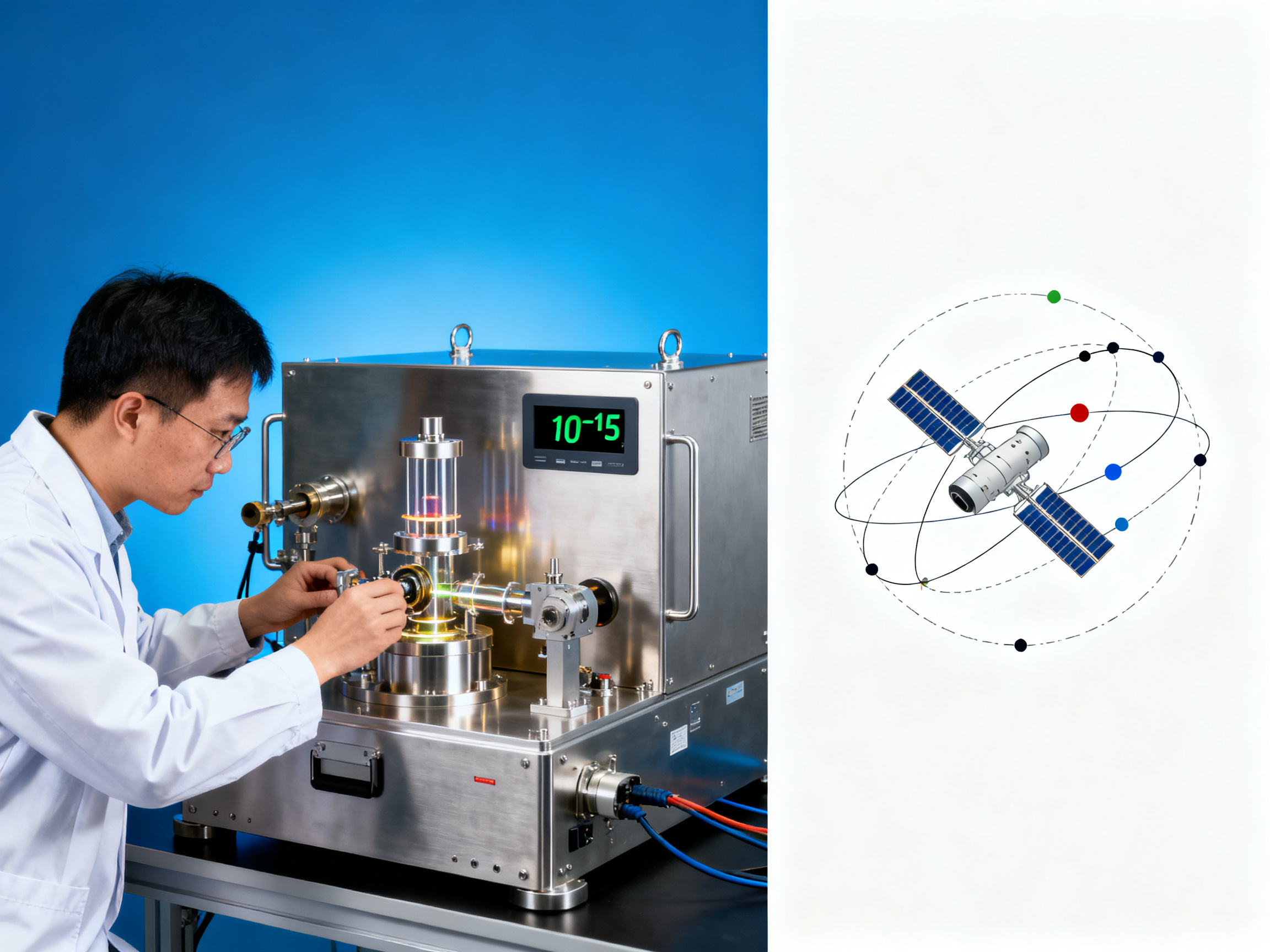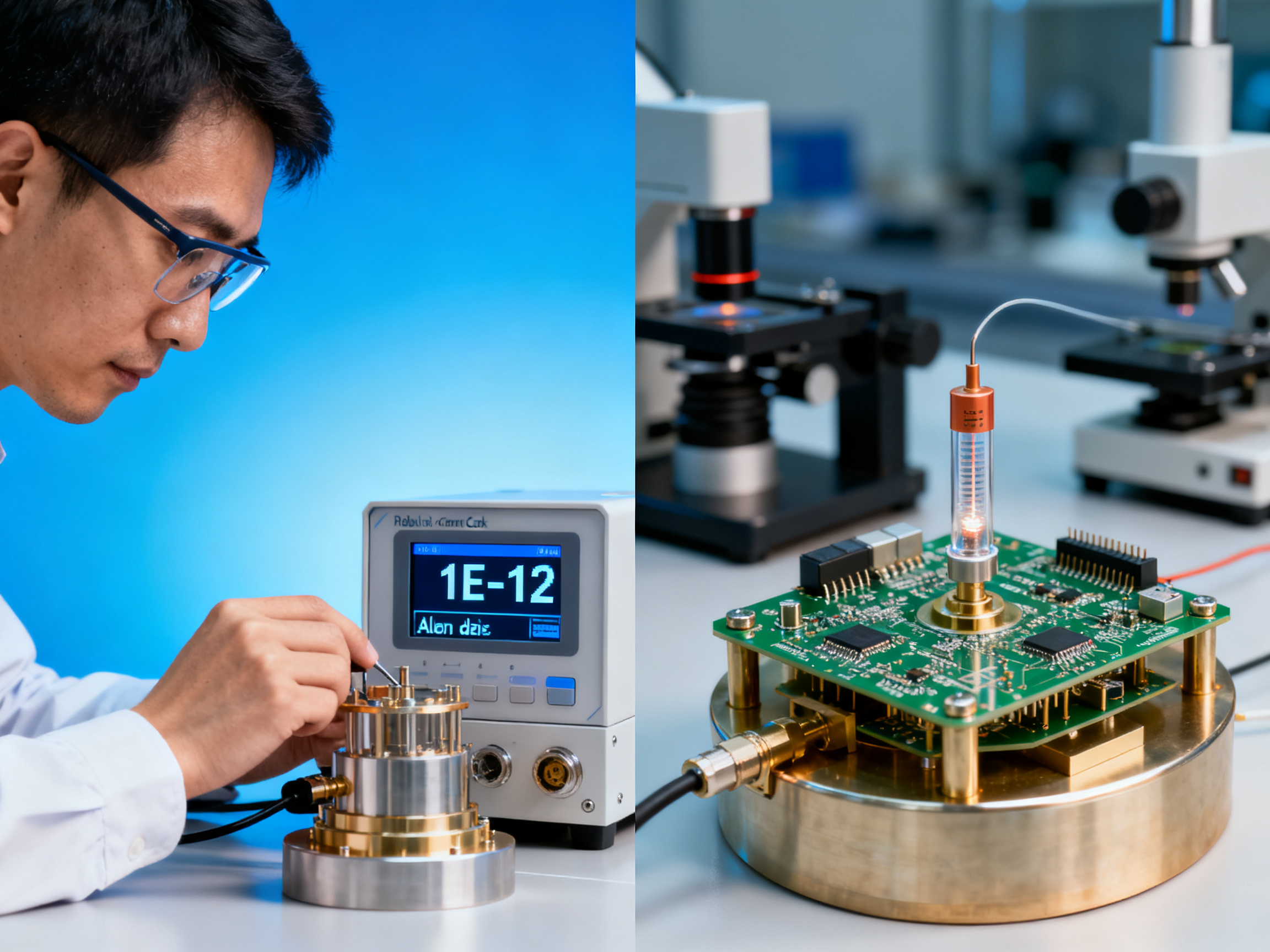RELATED
 Case Study: Implementing Optical Pump Cesium Frequency Standards in Aerospace Applications2026-02-02
Case Study: Implementing Optical Pump Cesium Frequency Standards in Aerospace Applications2026-02-02 Latest Innovations in Optical Pump Cesium Frequency Standards: 2023 Industry Updates2026-01-28
Latest Innovations in Optical Pump Cesium Frequency Standards: 2023 Industry Updates2026-01-28 Optical Pump Cesium Frequency Standard Maintenance: Best Practices for Long-Term Reliability2026-01-26
Optical Pump Cesium Frequency Standard Maintenance: Best Practices for Long-Term Reliability2026-01-26 Top 5 Factors to Consider When Purchasing Rubidium Atomic Clocks for Your Lab2026-01-22
Top 5 Factors to Consider When Purchasing Rubidium Atomic Clocks for Your Lab2026-01-22
MESSAGE
The Future of Navigation: Rubidium Atomic Clock Innovations
The rubidium atomic clock is revolutionizing navigation systems with its unparalleled precision and stability. As industries demand more accurate timekeeping, these clocks are becoming indispensable in sectors ranging from telecommunications to aerospace. This article delves into the innovations, applications, and future trends of rubidium atomic clocks, providing insights for decision-makers and operators alike.
What is a Rubidium Atomic Clock?
A rubidium atomic clock is a high-precision timekeeping device that uses the vibrations of rubidium atoms to maintain accurate time. Unlike traditional quartz clocks, rubidium atomic clocks offer superior stability and accuracy, making them ideal for applications where precision is critical.
Key Innovations in Rubidium Atomic Clock Technology
Recent advancements in rubidium atomic clock technology have significantly improved their performance. Innovations include miniaturization, reduced power consumption, and enhanced environmental resilience. These improvements have expanded their use in portable and harsh-environment applications.
Applications of Rubidium Atomic Clocks
Rubidium atomic clocks are used in various industries, including:
- Telecommunications: Ensuring synchronized data transmission across networks.
- Aerospace: Providing precise timing for satellite navigation systems like GPS.
- Defense: Supporting secure communication and navigation systems.
- Scientific Research: Facilitating experiments requiring ultra-precise time measurements.
Comparison with Other Atomic Clocks
Industry Standards and Certifications
Rubidium atomic clocks must meet stringent industry standards, such as:
- ITU-T Recommendations for telecommunications.
- MIL-STD-810 for military applications.
- ISO 9001 for quality management systems.
Cost and Alternatives
While rubidium atomic clocks are more expensive than quartz clocks, their long-term reliability and precision justify the investment. Alternatives like cesium clocks offer higher accuracy but at a significantly higher cost and larger size.
Common Misconceptions
Many believe rubidium atomic clocks are only for high-end applications. However, their affordability and compact size make them accessible for a broader range of uses.
Future Trends
The future of rubidium atomic clocks lies in further miniaturization and integration with IoT devices. As 5G and autonomous systems evolve, the demand for precise timing will only increase.
Why Choose Our Rubidium Atomic Clocks?
Our rubidium atomic clocks combine cutting-edge technology with reliability, offering the perfect solution for your precision timing needs. Contact us today to learn more about our products and solutions.
CONTACT US
Please use the form below to get in touch.
If you need a reply we will get in touch as soon as possible.





